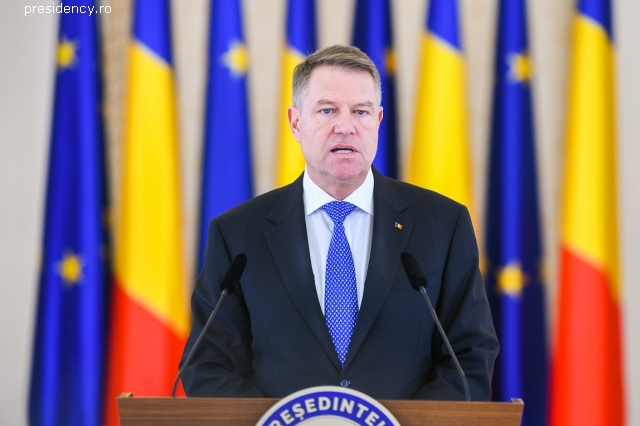Opinions on the Education Act
The President criticizes legislative changes that reduce the number of classes in Romanian under-graduate education.

Roxana Vasile, 04.01.2019, 13:52
Those who had expected a peaceful cooperation between the right-of-centre President and the leftist Government in Bucharest saw their hopes shattered in 2018 as well. And since 2019 brings both European Parliament elections and, more importantly, presidential elections in Romania, no one even dreams any longer that hostilities will stop. Quite the contrary. A new episode in the clash of Palaces took place in the very first days of the New Year.
The presidential adviser Ligia Deca explained, on behalf of Klaus Iohannis, why the latter decided to return to Parliament the legislative changes that stipulate a reduction in the number of classes in Romanian under-graduate education. Under these changes, the number of classes allotted for the school subjects are cut to 20 per week in primary school, 25 per week in secondary school and 30 per week in high school. According to adviser Ligia Deca, the bill, which has been adopted without an impact analysis, risks entailing negative effects on Romanian students and teachers. She criticised the rushed, insufficiently analysed reduction of the number of classes, as well as the lack of strategy and of medium and long-term vision in this sector which is vital to the future of the country.
Ligia Deca: “Such a reduction in the number of classes will most likely entail a tidal wave of layoffs in public education. More specifically, the bill modifies Article 66 in the Education Act, without assessing the impact on the employment scheme in public education. The bill also lacks final provisions stipulating the date of implementation of the changes operated on Article 66 in the Education Act.”
In response to the criticism, the Education Minister Ecaterina Andronescu said it was the President’s right to challenge the legislation. She added that a Healthcare Minister Order recommended a specific number of classes, and in drawing up the Education Act the lawmakers took into account the maximum values, and not the minimum ones in that Order.
We should also add that for years in a row, public education has been subject to countless, more or less successful attempts at reform. In 2014, when he won the Presidency, Klaus Iohannis, a teacher himself, promised a strategy entitled “Educated Romania.” The document was posted for public debate only in late 2018, after 4 years in office for Iohannis, and has been harshly criticised. It is so vague that it will not generate any concrete solutions, critics said, arguing that the Strategy will only be used as an election campaign topic, and as such, it will be highly politicised.
A lot of noise and few solutions, critics conclude, describing in fact a recurrent situation whenever attempts are made at changing the public education system.






























